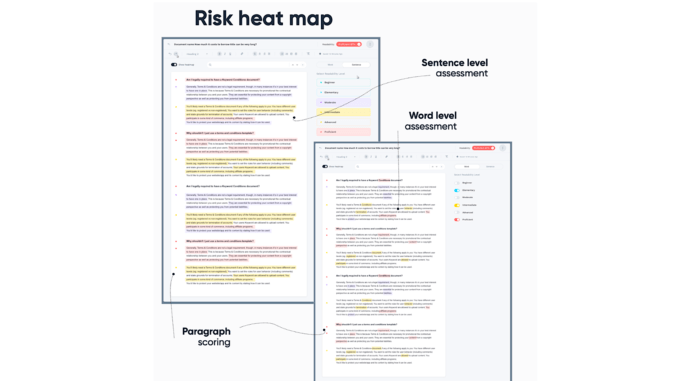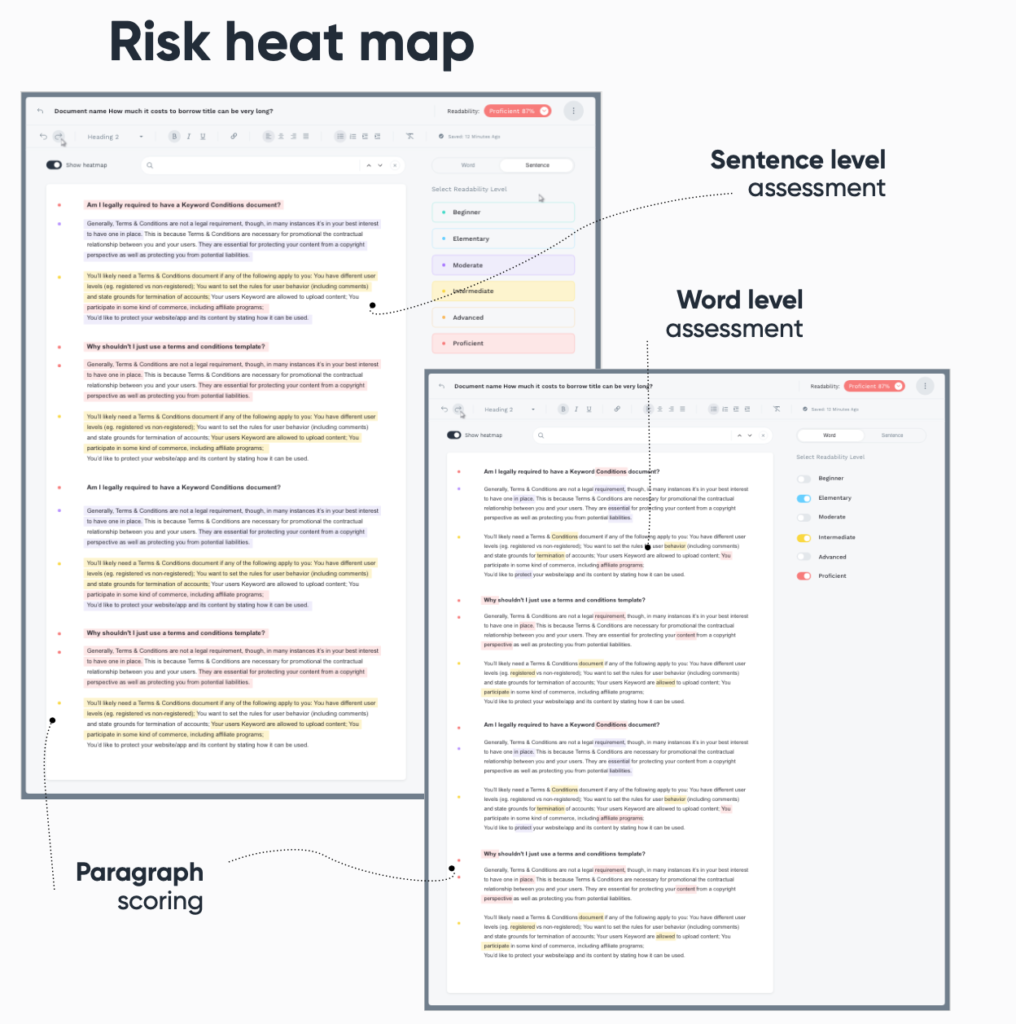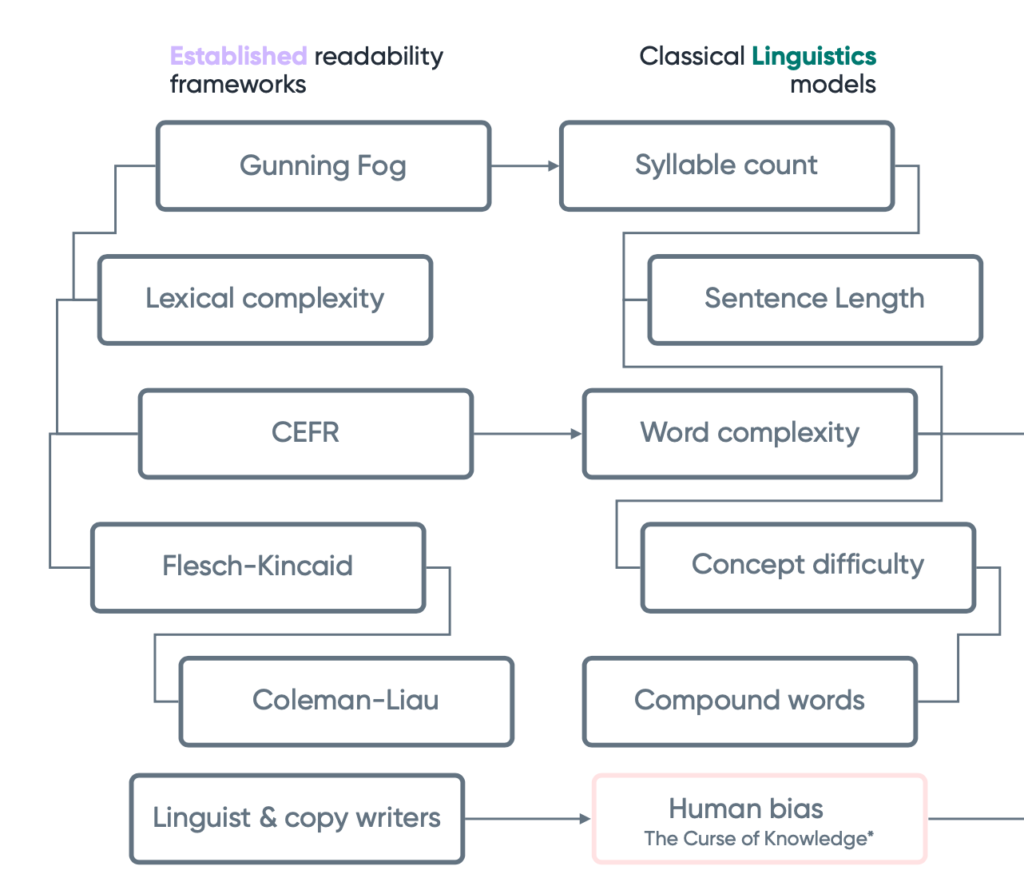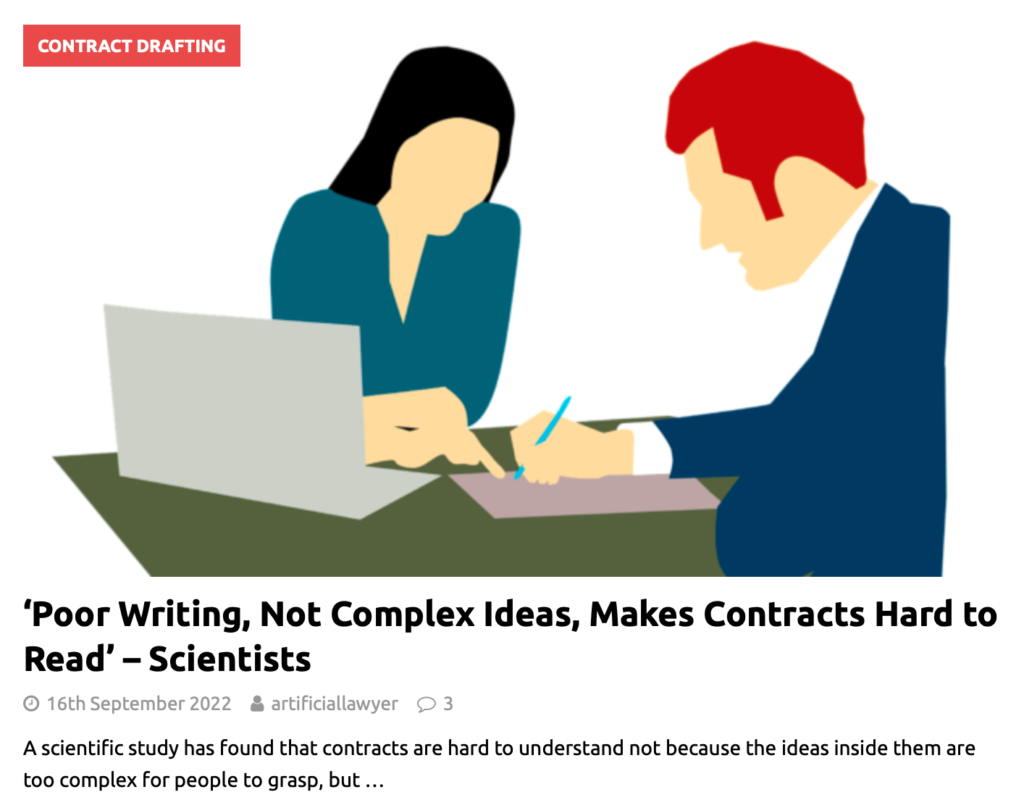
One of the most inspiring tech companies Artificial Lawyer has seen for a while is Amplifi, which aims to help people produce clearer and more easily readable formal documents and contracts. It does this by highlighting areas of low intelligibility and then suggests alternative language to ensure everyone can understand what they are agreeing to.
Why is this inspiring? Because if we live in a rules-based society we need to rely upon documentation that refers back to laws and regulations. Members of this society, i.e. you and me, need to be able to understand fully those documents. If we cannot then there is an intelligibility deficit and us citizens start to ‘switch off’ and expect not to understand, which inevitably leads to an unhealthy polarisation of knowledge between those creating these documents and those that must experience the consequences of the information contained in them.
If we can address this asymmetry, we can help to sustain a more healthy and democratic society. As, one can argue, do you really live in a democracy if you have to agree to contracts that impact your life that you cannot understand and if no-one in a position of power is bothered that you don’t?
Fortunately, organisations such as the Financial Conduct Authority in the UK and others are now increasingly stressing the need for intelligibility in contracts and other documentation that contains information of critical importance.
As London-based Minesh Patel, the CEO and founder of Amplifi told Artificial Lawyer (see interview below) clearly this is important for B2C communications, but there is also a great importance in areas such as how to word an employment contract – after all, shouldn’t your staff actually know what they are signing? Also, there is a B2B aspect, especially in relation to SMEs, most of which don’t have an internal legal team, yet the owners of the business are regularly agreeing to contracts.
Patel also raised another excellent point: that English may not be your first language, or even your second, yet you may be running a business and have to handle legal documents and contracts.
One other aspect, and which is personally experienced by Patel, is reading challenges. Patel explained that he has Meares–Irlen syndrome, which makes reading text difficult. Naturally, unintelligible legalese just makes things even worse.
Back to the product.
As you can see below, the software examines the text it is fed and provides a heat map showing where there are risks, not direct legal risks – but intelligibility risks. Although one could argue that if you don’t understand something and then sign it, then that is a clear legal risk.

It then uses (see next image) a range of linguistic models to provide more legible text. That’s the idea in a nutshell. The product is still developing, but Patel has formed academic partnerships with UCL and Queen Mary University among others, as well as engaging with regulators and large financial institutions.
Patel highlighted that it’s not just the FCA that cares about this, and rolled out a long list of other organisations and regulators that want the clearer use of language, from the Pensions Regulator to Ofgem the energy regulator.

The development of the product comes at an interesting time, with scientists at MIT concluding a study – now much read and commented upon by many lawyers and legal technologists – that stated that legal documents are not hard to read because of the ideas within them, but because of the way they were written.
See here for the MIT story, and here for a recent comment piece by Matt Goff from Ashurst.

Patel concluded: ‘It’s been a battle for three years and the FCA was one of first to get behind this issue. It will take a huge amount of people to facilitate change.’
However, things are already moving and armed with Amplifi hopefully this change can accelerate. Good luck to Patel and his team.